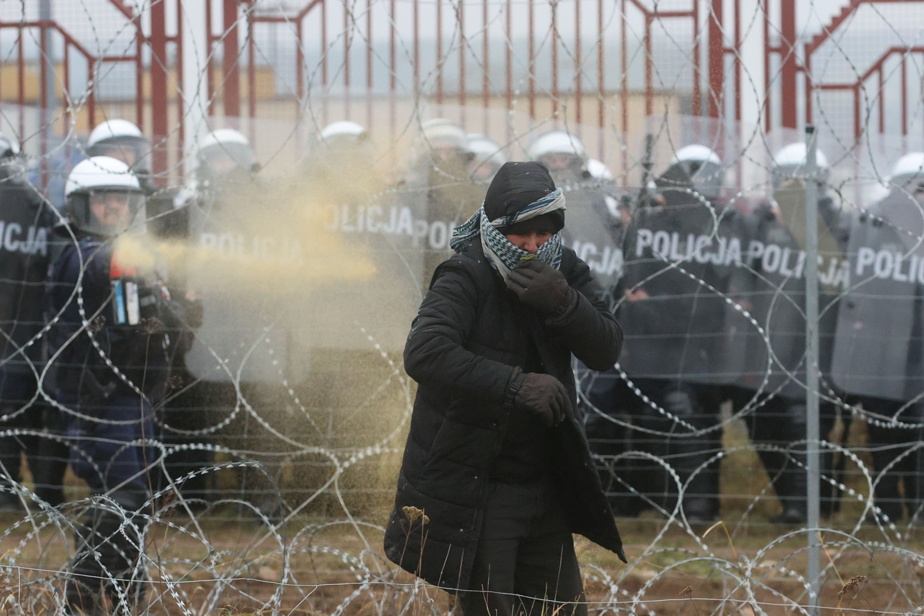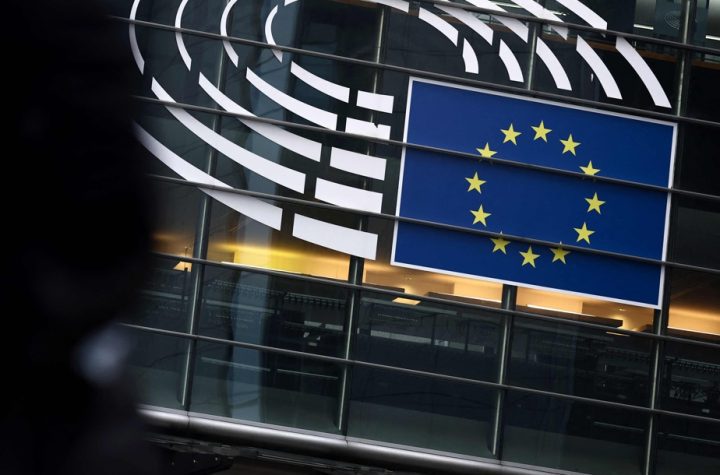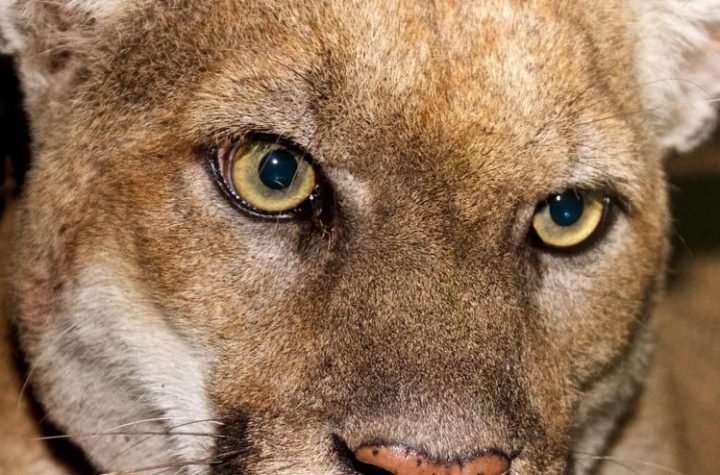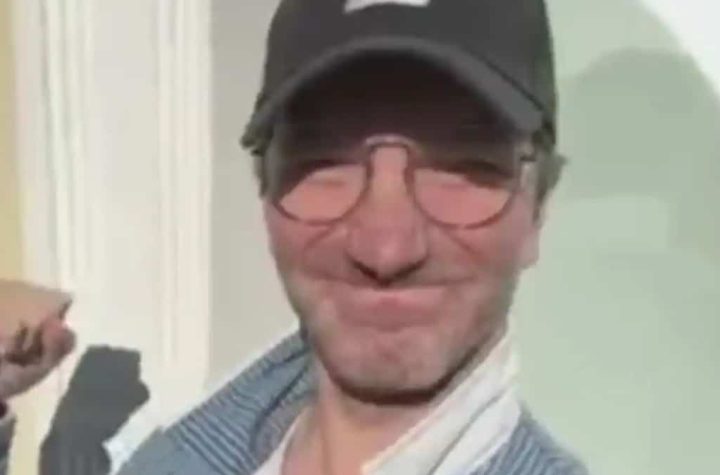
(Sokolka) Polish security forces used tear gas and deployed water cannons to repel stone-throwing immigrants as they tried to cross the border from Belarus on Tuesday, accusing Poland of trying to “worsen the situation”.
According to Polish border guards, a total of about 4,000 migrants are currently camping along the border in cold and deteriorating conditions.
The next day, in a telephone interview with German Chancellor Angela Merkel, Belarusian President Alexander Loukachenko promised the day before that he wanted to prevent an immigration crisis from escalating into a “confrontation” with his European neighbors.
Westerners accuse him of directing summer migration movements from the Middle East to the European Union’s eastern borders, which he denies.
A face-to-face meeting began last week near the crossing point between the Belarusian villages of Bruzgi and the Polish villages of Kuznica, where several hundred immigrants, often from the Middle East, gathered.
“Immigrants are throwing stones at our soldiers and officers and trying to break through the fence and enter Poland,” the Polish Ministry of Defense tweeted on Tuesday. “Our troops used tear gas to quell the aggression of the immigrants,” Kuznica said.
Mutual accusations
Polish officials reported that three of the security forces were wounded: a policeman, seriously wounded, a border guard and a soldier.
The EU says Minsk has organized the influx of thousands of migrants across the Poland and Lithuania borders in retaliation for sanctions imposed after the relentless crackdown on the opposition since 2020.
“The (President) Lukashenko regime is aiding and abetting the influx of immigrants inhumanely and shamelessly in an attempt to destabilize and break up the European Union. This is intolerable and unacceptable,” said French Prime Minister Jean Costex on Tuesday.
Brussels and Washington therefore announced on Monday that they would expand the punitive measures taken against Belarus in the coming days.
The exiled head of the Belarusian opposition Svetlana Tikhanovskaya (in Lithuania) welcomed on Tuesday, ruling that Alexander Lukachenko had “already crossed all the red lines”.
“The goal on the Polish side is very clear: it is necessary to aggravate the situation and suppress any progress towards a solution”, the Belarusian diplomat Anatoly Glass released on his part the same day, accusing Warsaw of “provoking” and “inhumane treatment of the poor”.
“Avoid Conflicts”
Russian Foreign Minister Sergei Lavrov also ruled that Polish behavior was “completely unacceptable” and that the polls “violated all legal standards”.
“The main thing today is to protect our country, our people and prevent conflicts,” Lukashenko said this morning, quoting the state press agency Belta. “This issue should not turn into a fiery conflict.”
His interview the day beforeMe Merkel has succeeded the Belarusian leader who has refused to speak to the West since his re-election in August 2020 with a scandal.
On Tuesday, the Kremlin reported that he had once again spoken on the phone with his Russian counterpart Vladimir Putin.
“An exchange on the immigration crisis continues on the border between Belarus and the EU countries, Mr. Lukashenko gave a conversation with German Chancellor Angela Merkel the day before,” we read in his press release.
Belarusian President in office since 1994Me Merkel said the crisis needed to be mitigated.
Sending home
“We are of the opinion that neither the EU nor Belarus needs an increase,” he said.
But he reiterated that views on how immigrants came to Belarus were “contradictory” and that his country was in favor of their arrival.
Iraq on Thursday announced a repatriation flight for at least 200 nationals stranded on the border in Belarus, including women and children.
On Monday, Belarusian airline Belavia said Syrians, Iraqis, Afghans and Yemenis were now banned from flying from Dubai to Belarus. Turkey imposed similar sanctions last week.
On the ground, many immigrants, often in debt to pay for the trip, said they were determined to stay, despite limited access to basic necessities.
At least 11 of them have died on either side of the border since the summer, NGOs said.
One of them, a 19-year-old Syrian who drowned while trying to cross a river at the border, was buried Monday evening on the Polish side.








